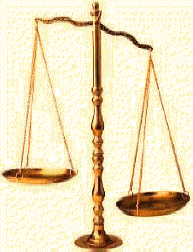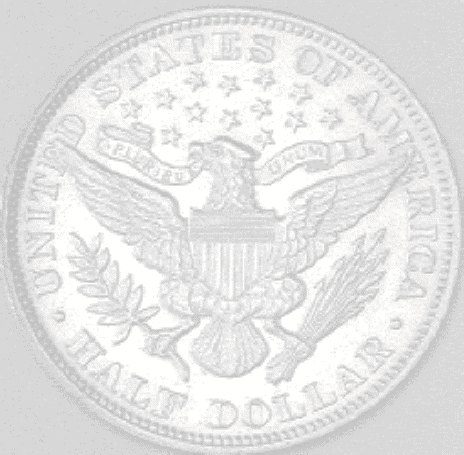
|
|
||
|
|
|
|
|
|
||

-17-
FOR BETTER OR WORSE:
CHAPTER FOUR:
AN ECONOMIC HISTORY FROM RECONSTRUCTION TO THE FEDERAL RESERVE ACT
(1866-1913)
Text: "Divers weights and divers measures, both of them are an
abomination to the Lord." – (Proverbs 20:10)
Does God Care?
Does God care about banking and
banking practices? Does He have a right to interfere in the affairs of
men? Everything in God's creation should be in subjection to His law.
Banking is no exception, yet there are many who would have the Lord keep
His mouth shut in areas they deem do not concern Him.
Solomon declares "All the weights of the bag are His
work." (Proverbs 16:11) He must therefore be concerned about weights,
i.e. value. He is, and in order to avoid the arbitrary fixing of values,
God has established Law as the means by which banking is to be
regulated. The "Law of the perfect and just weight and measure" is the
Law upon which God has established banking. Therefore, if a society
would evoke the blessing of God, its banking practices must be brought
into subjection to the Law. There is but one Lawgiver: that is God, and
the principles of banking, like their Author, are everlasting.
The subject of banking is of such a crucial nature that
according to the Jewish Talmud, "He is the king of the country whose
coin is current in the country” (Henry, 5:319). Aristotle declared
government begins at the time when metal is circulating by weight to
certify the weight and fineness (White, 38). In fact, the shekel, the
talent, the drachma, the pound, the penny, the peso, the livre, and the
mark were originally the names of weights (White, 31). Until 1965, when
the Federal Reserve vandalized the coinage of this country by removing
silver from its content, the Encyclopedia Britannica correctly defined a
"dollar" as "a weight of gold or silver (Wilber, 23). The Latin word "expendo"
from which we derive our word "expend" and "expense" means "to weigh
out,” and a “stipendium" is a payment by weight (White, 30-31).
What Is "Money?"
The Greeks and Romans
considered cattle as wealth and therefore used them to barter. Words
like "pecuniary," and "peculiar" are derived from the Latin word "pecus"
or "cattle." Therefore, "peculation," or "embezzlement," properly
denotes "cattle lifting."
The first metal used as “money" among the Romans was
the "aes" or "copper." We derive the words "esteem" and "estimate" from
the Latin "aestimatio” (White, 3).
Abraham purchased the cave of Machpelah from Ephron the
Hittite for 400 shekels of silver "and Abraham weighed to Ephron the
silver, which he had named in the audience of the sons of Heth, 400
shekels of silver, current money with the merchant." (Genesis 23:16)
When in the early 1700's the Legislature of New York began to use silver
coin in its transactions, it was tantamount to a return to the Biblical
system.
All trade is barter, or in the words of Aristotle, the
exchanging of one useful thing for another (Aristotle, 1:9). This is the
science of "money" and to bank by utilizing any other system than that
of "a perfect and just weight and measure" is to bank on wind.
